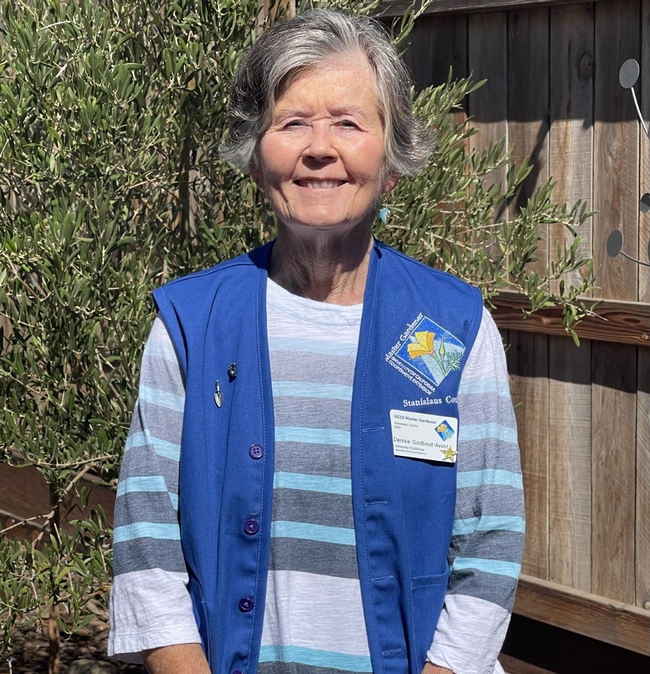
Mulching Perennials
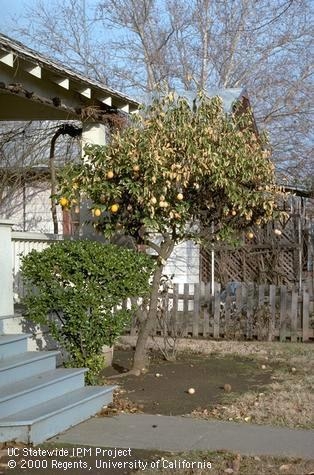
Trees and Shrubs
Trees and shrubs usually have an easier time getting through the winter if they are in good shape. However, if a freeze is forecasted, one of the most important things to do is to ensure they have been watered 2-3 days prior, especially if autumn has been dry. As with perennials, mulching with fallen leaves or other mulch will help protect the roots, but do not have mulch up against the tree trunk or plant stem, which could cause rot to occur.
Wrapping trunks of young trees with blankets, towels or piping insulation will provide added protection.
Bulbs
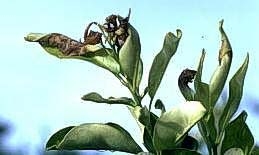
Wait until after the first frost, then gently dig up the bulbs or tubers. Cut away any leaves and brush off as much soil as possible. Let them dry out in a cool spot for about a week. Label them so you'll remember what they are! Pack them in a breathable box, such as a cardboard box, storing the bulbs so they don't touch each other, and cover them in sawdust or shredded newspapers. Keep them in a cool, dark location that is below 45°F, but doesn't freeze.
Citrus
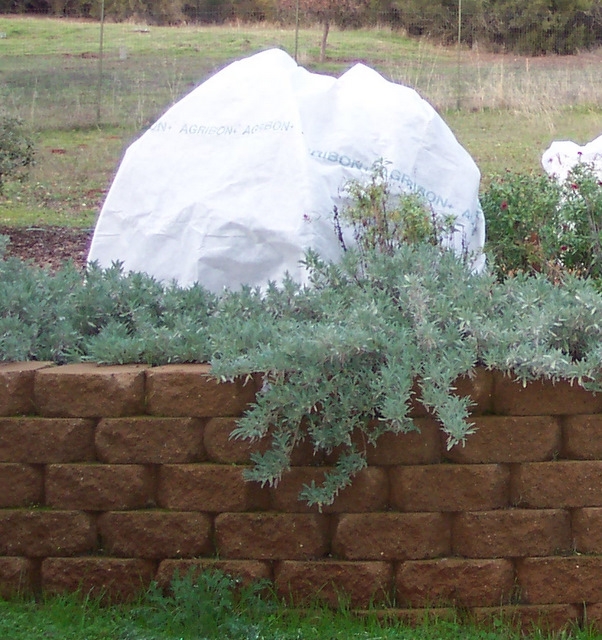
Citrus plants can be protected by frost cloths which allow some light and air to penetrate and can stay on plants for a few days at a time. They can also lay directly on plant foliage. If you use other type of cloth such as burlap or cotton sheets, use stakes to hold the cloth away from the plant greenery. Remove it during daytime when temperatures are above freezing and sunny, and replace it each night prior to sunset. Whatever cloth you use, make sure the cloth goes all the way to the ground to capture radiant heat from the ground. If there is mulch around the plant, rake away during the day, if above freezing and sunny, to allow the soil to warm up.
Roses
Some roses are more sensitive to cold than others. As a group, hybrid tea roses are the most vulnerable. Make sure they are watered prior to predicted freezing temperatures, protect the root zone with mulch on the soil mound. You may also wish to cover your sensitive roses with frost cloths.
Container Plants
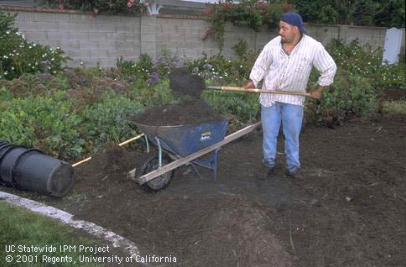
What do do if frost damages your plants? Wait!
Frost damage occurs when the water inside the cells of a plant freeze, causing damage to the cellular walls, which harms the overall health of the plant. Frost damaged vegetation will wilt, turning brown or black, as if they have been scorched. The bark may crack, or split. In severe or prolonged periods of frost the plant can die.
If you see what appears to be frost damage, wait until late spring until all chance of frost has passed. Plants are resilient and can often recover on its own, producing new growth. Pruning what seems to be damaged branches too soon can cause significantly more trauma, even death, to a vulnerable plant that might otherwise have recovered in the spring.
Resources
- https://ucanr.edu/blogs/blogcore/postdetail.cfm?postnum=22929
- https://sacmg.ucanr.edu/Frost_Protection/
- https://ucanr.edu/blogs/blogcore/postdetail.cfm?postnum=45517
- http://ipm.ucanr.edu/PMG/GARDEN/ENVIRON/frostdamage.html
Denise Godbout-Avant has been a UC Cooperative Extension Master Gardener in Stanislaus County since 2020.
- Author: Rho Yare
Rho Yare is a first year Master Gardener in Stanislaus County.

In most cases plants are forgiving, will not lecture you, give away any of your secrets, request money nor the car keys. Those plants in your yard, patio or on the balcony might just need a little love and right now you have the time.
If you are fortunate to have some land around your home perhaps this would not only give you other options of things to do while at home but make your world more attractive and interesting. Wander round your space and reacquaint yourself to what is planted there. This might be a good time to weed, trim, or remove shrubs or plants that are no longer looking their best. Perhaps checking the irrigation system or planning some changes that you might like to make to your outside environment.
At this point all the health experts are telling us that spending time outside is good for us if you are healthy and if we do not congregate with those not in our immediate living situation. Including young people in the exploration of your garden/yard is a wonderful way to talk to them in a relaxed setting and listen to their fears, interests, and frustrations. If there are no young people in your home, then this might be a perfect time for a solo garden experience.

You could invite that person who shares your home to join you outside in your gardening area to keep you company while you work. A change in routine and space can sometimes produce surprising results. Sharing this time might make communication easier and perhaps alleviate some fears and anxieties about COVID-19 and the future.
Getting away from all those screens and looking at something besides the inside of your home could be beneficial to your mental wellbeing. If you have a patio or balcony you can still garden and have the benefits of exercise, stress reduction, beautification, education, and possibly a food source.
Children are especially excited when the seeds they plant in containers begin to sprout little green leaves. You might already have some containers that can be used for your small space garden.
Or consider the next time you make that trip to purchase home supplies at a grocery or variety store you add a container, some soil, and a package or two of seeds. It is amazing how your gardening experiment will be interesting, challenging, and have the bonus of the “I did this” factor for adults as well as for young people.
Although some resources have been curtailed the Internet has many sites that can give you gardening advice. Another source is the UCCE Master Gardeners of Stanislaus County. Master Gardeners are volunteers who have completed a rigorous course of classes and would welcome your questions, offer free advice, and encouragement. Leave a message for us by phone (209) 525-6802 or email ucmgstanislaus@ucanr.edu
Adding gardening and outside time to your schedule might help with some of the long and possibly boring days ahead. None of us want to be “stuck” in our homes but expanding our horizons to a little beyond the four walls just might make this time more interesting for you and give you some new skills and interests.

